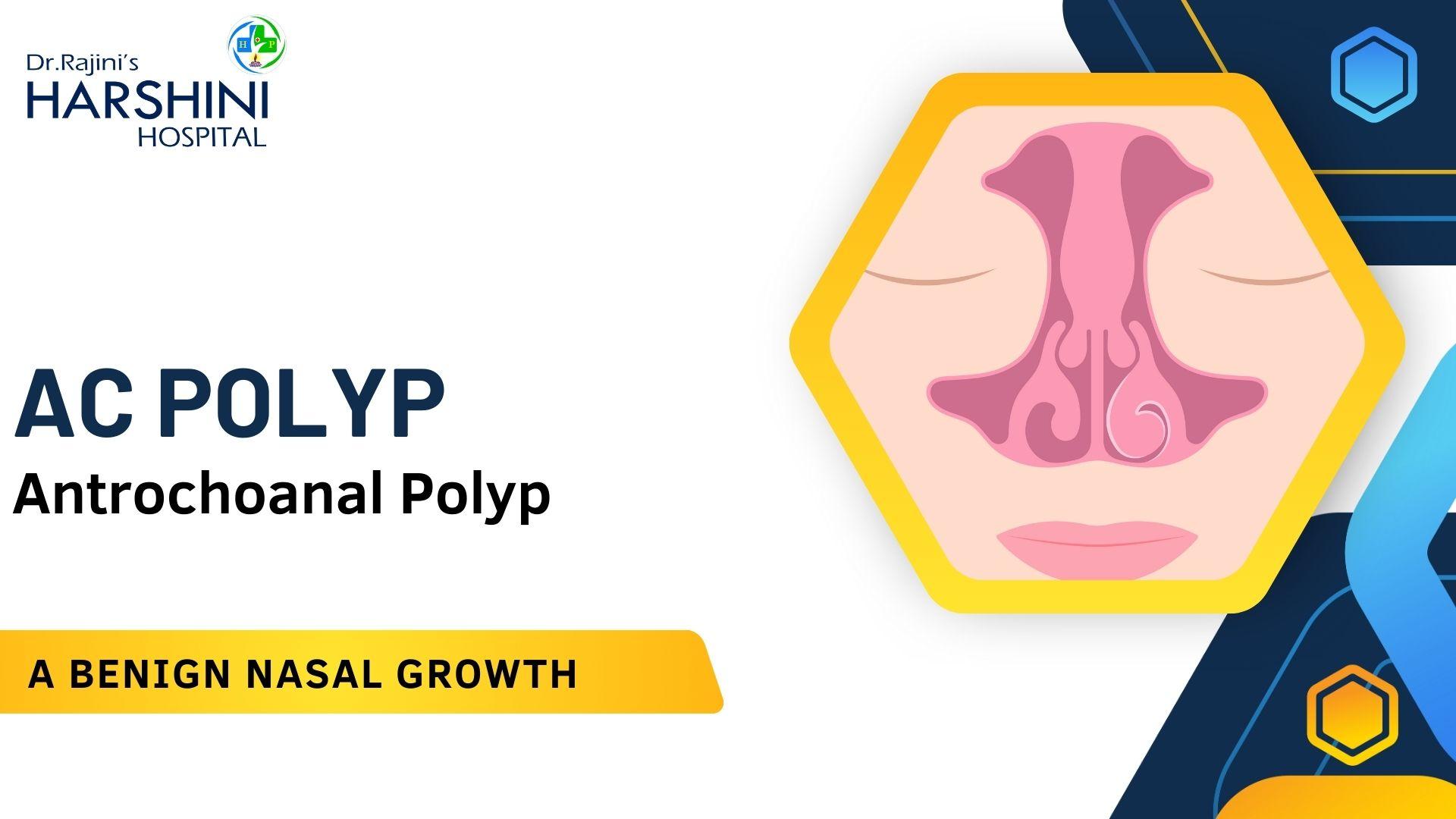
A Nasal Benign Non Cancerous Growth
An Antrochoanal Polyp (AC Polyp) is a benign (non-cancerous) growth that originates in the maxillary sinus (the sinus cavity located in the cheek area) and extends into the nasal cavity, sometimes reaching the throat (nasopharynx). Unlike other types of nasal polyps that are usually bilateral, AC Polyps commonly affect only one side of the nasal passage and are more frequent in children and young adults.
The exact cause of AC Polyps is not fully understood. However, they are often linked to:
Patients with AC Polyps typically experience symptoms that affect breathing and nasal function, including:
Diagnosing an AC Polyp involves a few key steps:
Since medications usually have limited effectiveness in completely resolving AC Polyps, surgery is the primary treatment. Functional Endoscopic Sinus Surgery (FESS):